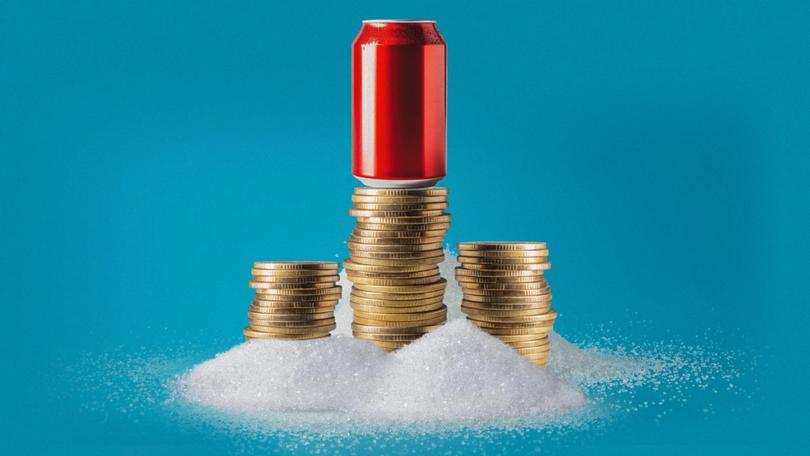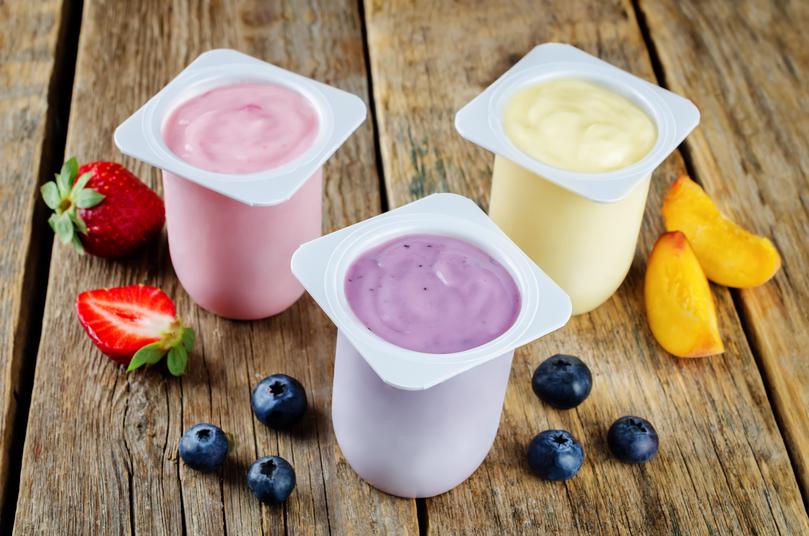JENI O’DOWD: Junk food ad bans won’t cut obesity. We must be bolder and introduce a sugar tax

Leave it to the Australian Greens to think banning bus ads will save Australia’s kids from obesity.
Here’s a reality check: parents buy the junk food, not the kids. Does Senator Sarah Hanson-Young really believe a 15-second ad or a poster on a bus turns children into unstoppable nagging machines, forcing their parents to cave in and stock up on potato chips and soft drinks?
If the Greens are so convinced ads dictate behaviour, why not plaster buses and trains with kale posters and wait for Australia’s obesity crisis to magically melt away?
Sign up to The Nightly's newsletters.
Get the first look at the digital newspaper, curated daily stories and breaking headlines delivered to your inbox.
By continuing you agree to our Terms and Privacy Policy.This week, the Greens urged the Albanese Government to issue a Federal ban on junk food advertisements, citing concerns for children’s health. The call followed South Australia’s policy of banning unhealthy food and drink ads on public transport starting July 1.
The Greens went a step further, with the SA Senator saying: “If a ban on junk food ads on buses, trains and trams can make a difference, then a ban on TV and online ads is absolutely vital to really drive change.
“Without Federal intervention, our kids will still be bombarded with junk food ads every time they turn on the TV or go online.”

It’s just another classic case of the Greens backing feel-good solutions that sound noble but achieve little. If they genuinely cared about tackling obesity, they should advocate for policies that actually work, like a sugar tax.
Yes, Australia’s obesity rates are staggeringly high. Two-thirds of adults were overweight or obese in 2022, with only 30 per cent of Australians falling within a healthy weight range.
By 2025, a third of adults are expected to be obese. The rates for children aged 5 to 17 have nearly doubled since 1995.
This isn’t just a health crisis — it’s also a financial one. In 2018, obesity cost the Australian economy $11.8 billion, and projections say this could balloon to $87.7b by 2032.
Instead of superficial fixes like ad bans, we should ask why Australians choose junk food over healthier options in the first place.
Processed foods are easily available, and during a cost-of-living crisis, junk food is often the only affordable snack.
Banning junk food ads might reduce exposure, but it won’t fix the affordability of healthy choices or the easy availability of unhealthy food. When a bunch of grapes costs $11, and a mango is $3.50, is it any wonder we turn to cheaper, calorie-dense options?
Nowadays, a trip to the supermarket is enough to send anyone to the couch for comfort food to help them get over the shock of the bill.
And even Australia’s health star rating system — a tool meant to guide better choices — is flawed.
Leading paediatric nutritionist Mandy Sacher says the self-regulated system allows high health ratings for many kids’ popular snacks which are actually filled with sugar.

“The system has significant flaws. It often overlooks the overall nutritional quality of a product, allowing foods that contain refined sugars, artificial sweeteners, additives, preservatives, and other artificial ingredients that are low in essential nutrients to receive surprisingly high ratings,” she said.
Meanwhile, more than 108 countries — including the UK, the US, France, and India — have implemented a sugar tax on sugary drinks. The evidence already shows that obesity rates are dropping in those countries.
The AMA, Dietitians Australia, and other health bodies have long advocated for such a tax in Australia.
As I revealed last year, AMA president Professor Steve Robson estimates a sugar tax could raise more than $1b annually — a welcome injection back into the health system to treat associated diseases such as adult-onset diabetes and related complications such as stroke and cardiovascular disease.
A sugar tax does more than target sugary drinks — it changes behaviour. It makes people think twice before buying that extra-sweet beverage and forces companies to reformulate their products. It’s not a nanny-state policy like banning advertisements; it’s an evidence-based intervention that works.
And here’s an idea: instead of blaming bus ads, let’s encourage Australians to get off the couch and move.
Obesity isn’t just about what we eat — it’s about what we do (or don’t do). Kids today are glued to screens, and adults aren’t much better.
Governments should promote active lifestyles with the same zeal the Greens use to debate junk food ads. Subsidise gym memberships, invest in public exercise spaces and make physical activity part of our culture again.
At the end of the day, parents make the purchasing decisions, not kids. The Greens’ obsession with ad bans ignores this simple truth. Parents need better education about nutrition and the tools to make healthier choices for their families.
Obesity is a complex issue, but we won’t solve it with Band-Aid policies like ad bans.
A sugar tax is the bold step we desperately need to tackle this crisis at its root. And if that’s too much for the Greens to handle, maybe it’s time they sat this debate out.
